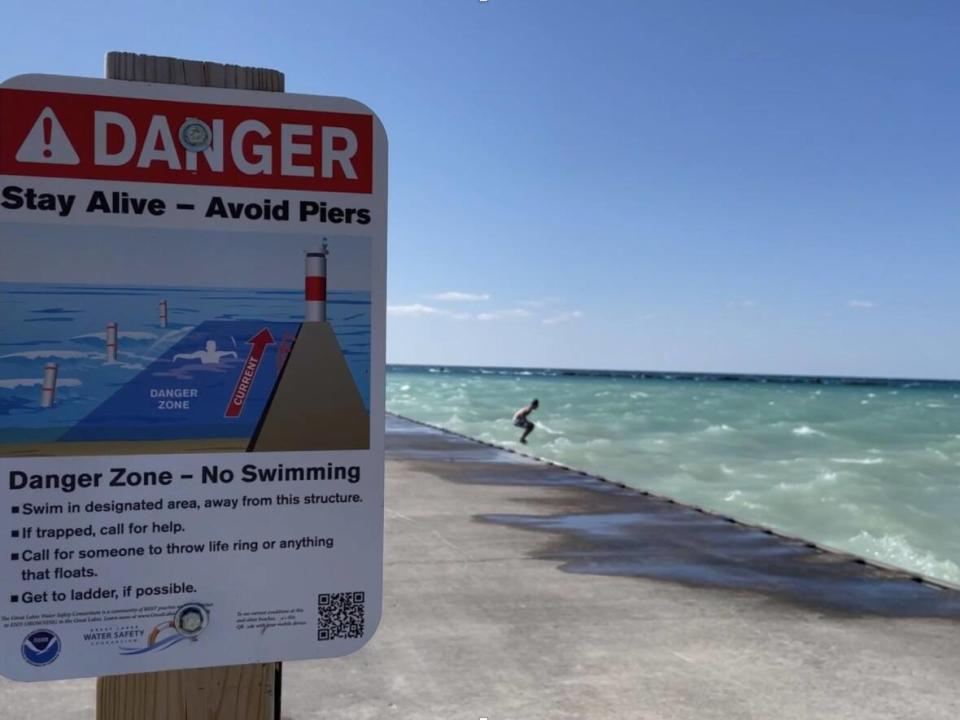University of Windsor researcher hopes a 'smart' beach can prevent drownings

A University of Windsor researcher wants to create a beach warning system to prevent drowning deaths.
The school's dean of science Chris Houser is launching a pilot project, Smart Beach, this summer in Kincardine, Bruce County, that aims to make beaches safer. According to Houser, about 50 people drown on average in the Great Lakes each year.
"We really don't have a good understanding as to when and how those [beach] hazards develop and how do we better provide safety messaging to beach users," said Houser, who is also a professor in the University of Windsor's Earth and Environmental Science department.
The network of sensors that Houser and his team will deploy at Kincardine's Station Beach will monitor water levels, waves, currents and pedestrian patterns.
LISTEN: Houser talks about the project on CBC Radio's Windsor Morning
All of this, said Houser, will better inform them and allow them to advise beach-goers through an automated system on, "which sections of the beach are safer, which sections of the beach are more hazardous and when those [conditions] may occur."
Mayor of Kincardine Gerry Glover said in a news release that the municipality is "excited" to host the pilot.
"Every year we welcome thousands of people to our beautiful beaches, and thanks to the Smart Beach partners we will benefit from advances in technology to provide residents and visitors with real-time information on local water conditions to improve beach safety," Glover's statement reads.
Houser told CBC Radio's Windsor Morning that he's also consulting the psychology department on this initiative.
"[The project] is not just focused on the physical hazard of the waves and the current, but it's also focused on the psychology of the beach user, how do people make decisions? How do they then follow the paths that are already put in to place?" he said, adding this information will help him design a warning system that people will use and follow.
Moving forward, Houser said he hopes to see this type of technology deployed at beaches in Windsor-Essex so that people can be more informed before they head out into the water.
"[We're] hoping that this becomes something of a standard approach," he said.
"So it helps beach users know when and where those hazards might be present and also to pick the beach that is probably safer on any given day."

 Yahoo Sports
Yahoo Sports 